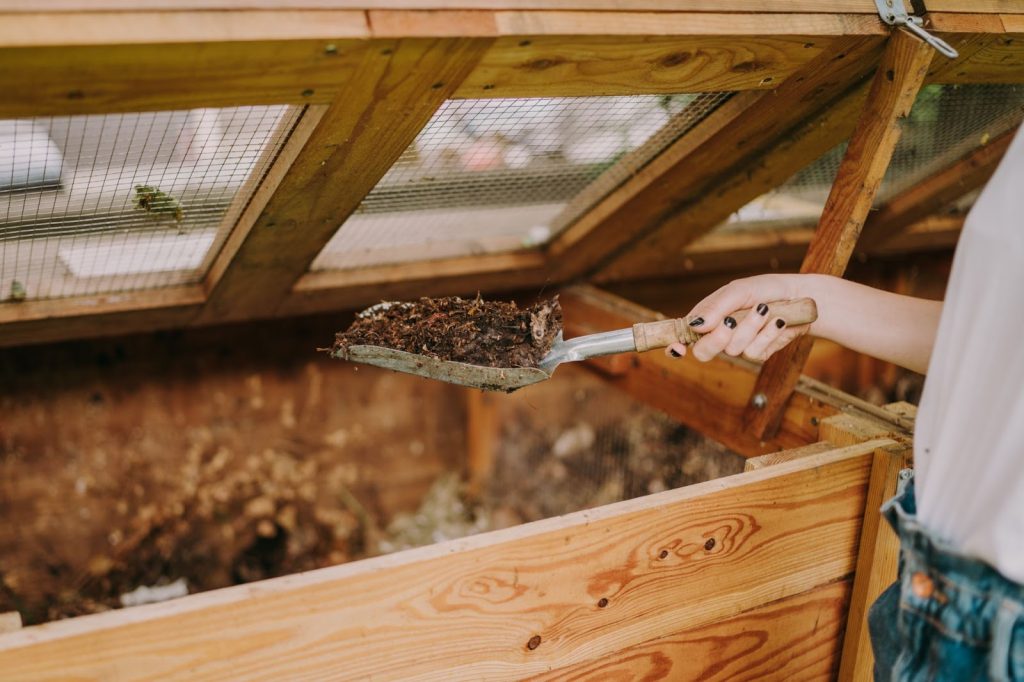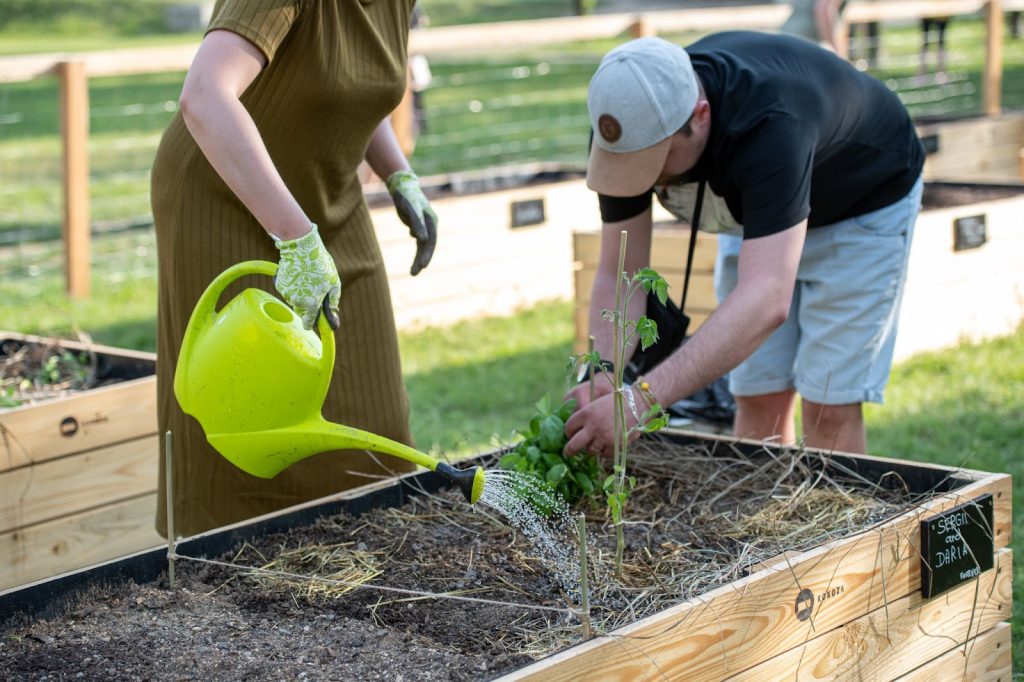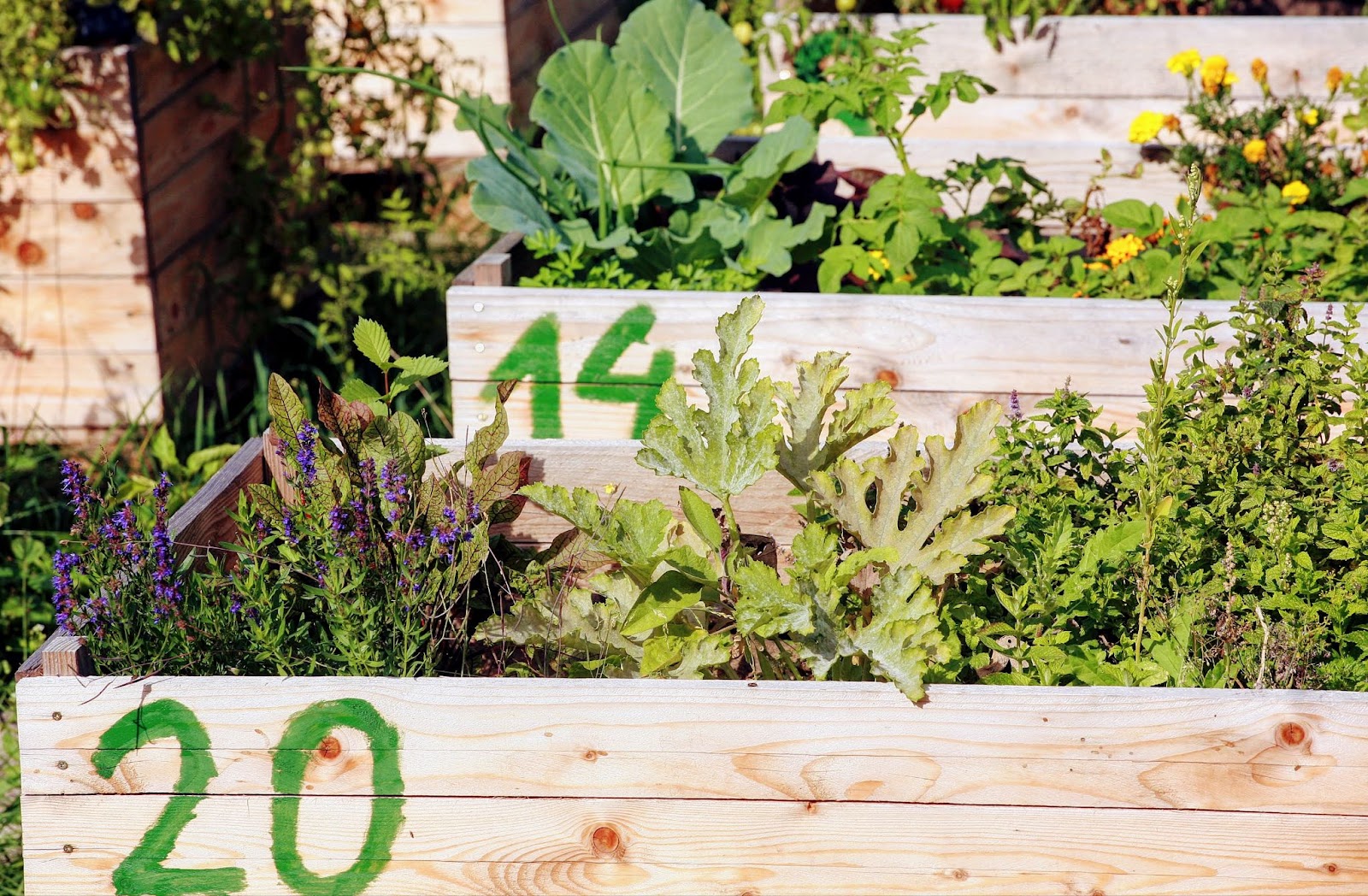In a functional community garden, water is a crucial item to be taken care of. As the climate changes, droughts spread through Europe, thus it is necessary to observe these changing conditions carefully, think about relevant and sustainable mitigation measures, and adapt. Sharing the best practices can be a good way how to be prepared. So let’s copy, paste and benefit together!
Community composting is possible even in the capital city
Community Composting in Fünfhaus in Vienna, Austria, was initiated by the organisation Gartenpolylog in 2020 with the aim to create consciousness about resource cycles and composting in the neighbourhood, involving people in composting who do not have gardens and enhancing encounters among neighbours. Composting is a great and natural tool how to prevent waste production and an efficient way how to improve soil quality by supporting natural processes such as the supply of nutrients, improvement of soil structure, and water infiltration.
Members of the community composting group collect their organic waste and compost it together in a composter. Selected members meet every few months to turn over the compost, take care of the right conditions and report the results to the community. In the end, they harvest the compost together, share it and use it as fertiliser for their plants at home or in urban gardening activities.

The case study of community composting in Fünfhaus arose as an educational activity at first in order to establish a functional and sustainable community. For the first 18 months, all activities were financially supported through a funding scheme for social innovation by the City of Vienna. A significant role in this process played a trainer (i.e. a compost master), who has helped build a self-contained community that is able to take care of the composter and the entire process on its own after completing the educational activity.
High mulch raised beds work well in Prague’s MetroFarm
The community garden MetroFarm in Prague, Czech Republic, was established on temporary unused land, a so-called brownfield, waiting for a new city quarter to be built. The whole project was determined by a contract with a development company waiting for the planning permission to build a new city quarter on almost 13 ha.
MetroFarm is an innovative project since it connects the processing of biowaste from different locations in the city and managing city parks or greenery. It is supported by Prague’s municipality and cooperates with other similar projects in order to get support and stay valid. The coordinators combine different financial sources, such as community garden membership, market sales, garden sales, grants, etc. Behind the whole project stands Štěpán Říha, enthusiast and gardener amateur, beekeeper, breeder, and networker.
The gardeners decided to build extensive raised beds to improve the soil conditions, especially in order to add nutrients and improve soil structure with water infiltration. The layers and the construction of the raised beds are inspired by permaculture principles, built straight on the surface without digging, by covering the soil with cardboard, grass turf, wooden chips, manure, hay or straw, leaves, grass, and compost in thick layers.
When there are rich resources of sufficient amounts of plant residue, the raised beds are a great solution how for improving soil conditions and growing vegetables without a vital water source. Using plant residue and manure from the stables without transport on longer distances is a way to sustainable farming both from the environmental and economical perspectives.
How to retain rainwater according to the Kuchyňka Community Garden

The Kuchyňka Community Garden in Prague, Czech Republic, was created on a steep southern slope in 2013 with the intention was to growing vegetables. The garden could not have been created without the support of some organisations such as AMPI or grants involving both the necessary finances and soft skills. The land owner has also been a great support, claiming rent of a symbolic height and co-finances e.g. the restoration of the well.
After a big drought in 2015, it became clear that better water management and new measures for more intensive production cultivation were needed. The community of urban gardeners has built a sophisticated system of rainwater runoff collectors to reuse the water for irrigating the vegetable garden.
The local well was restored and a whole system of rainwater collection was established – it includes a wooden tool shed with a green roof, a meeting building with rain collection in the gutters, and then IBC tanks. From these, water can be distributed to nearby vegetable beds by gravity or pumped into a 2.5 m deep catch basin. In addition, gravel-laden containers with aquatic plants float on the water level as a pontoon. The plants purify the water and cover the water level to prevent evaporation. In the future, fish breeding is considered.
The ability to retain rainwater is essential for today’s productive vegetable growing. There are many other ways how to work with water, such as mulching some crops or swales, depending also on the finances available. The total cost of this sophisticated rainwater collection system in Kuchyňka Community Garden would not have been possible without grant funding.

